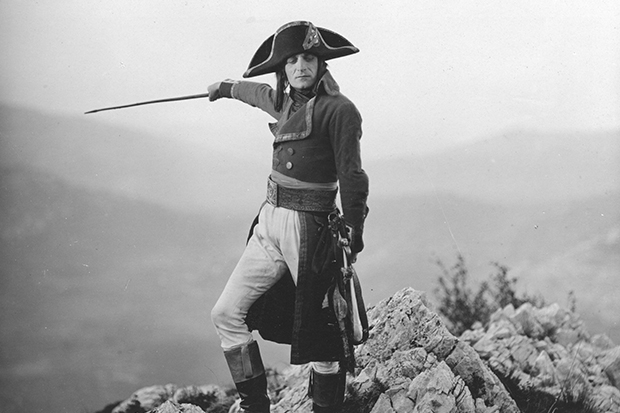Who says that the ‘great man’ theory of history is dead? Following hard on the heels of Andrew Roberts’s magnificent biography of Churchill comes this equally well-written life of another superman who bestrode his era and all Europe like a colossus.
Although Adam Zamoyski is at pains to insist that his subject was an ordinary mortal like any other, the simple facts of Bonaparte’s career somewhat belie any attempt to cut the little fellow down to size. How could this second surviving son of an impoverished minor nobleman from an obscure island come, within a few years, to dominate the entire continent, dictate terms to emperors, kings and popes, and set his own siblings on the thrones of the countries he had conquered?
Zamoyski’s answer is that Napoleon had the quality that he demanded of his own generals: luck. His spectacular success came from a combination of his own ability and ambition interacting with the special circumstances surrounding his rise to power. The chaos of post-revolutionary France allowed other humbly born men matching his military talents to become the marshals who marched beside him to innumerable victories.
He could not have achieved his triumphs without the aid of those who took similar advantage of smiling fortune: his brother Lucien, a politician who engineered the coup that made him First Consul; Murat, the flamboyant cavalryman who secured the guns with which Napoleon dispersed a rioting Paris mob with the famous ‘whiff of grapeshot’; and Berthier, his brilliant chief- of-staff, who translated Napoleon’s often incoherent orders into battle-winning action.
The refreshing distinction of Zamoyski as a biographer is that he humanises Bonaparte — in contrast to others who either hero-worship ‘Napoleon the Great’ (the title of Roberts’s recent adoring life of the emperor) or damn the Corsican usurper as a war-mongering mountebank who devastated Europe and slaughtered millions for the sake of his ego. In portraying the person behind the many myths that have accrued around his name, Zamoyski acts as a skilful picture-restorer, scraping away layers of lies, exaggerations and misconceptions to reveal the man in his true, unvarnished colours.
Thus, Zamoyski presents Napoleon the romantic, heavily influenced by contemporary sentimental fiction: Napoleon the great lover with his many mistresses — but slavishly attached to the faithless Josephine; Napoleon the practical and constructive statesman, whose code still forms the bedrock of French law; Napoleon the revolutionary, who replaced autocracy with liberal ideals on the points of his army’s bayonets; Napoleon the great commander, whose favourite tactic of dividing his enemies and defeating them piecemeal won time and again; Napoleon the Italian mafia don, only really trusting his own family; and Napoleon the PR spinner, burnishing his image for posterity. It is a convincing portrait of a many- faceted man.
As a proud Pole, Zamoyski is particularly good on Napoleon’s relations with that unhappy country, especially on his liaison with the beautiful Maria Walewska, a relationship which she entered into for purely patriotic purposes to advance the cause of her native land. He has been well served by his publishers, who have furnished a range of unfamiliar illustrations, along with maps of the major battles.
The spell that Napoleon continues to exert is attested to in Mark Braude’s detailed study of his exile on Elba, the tiny island where he was sent after his first abdication in 1814. With his customary energy, the fallen emperor put in train public works in this miniature empire, transforming the island, before attempting the last gamble in a life of such daring ventures: his return to France.
Braude and Zamoyski agree that this coda to his career was forced on Napoleon by the Allies, who were already planning to send the fallen eagle to St Helena to keep him out of the way for good. Waterloo and Wellington put paid to any chance of a second coming for one of the most remarkable people to have trod the earth.
The last miserable years in the South Atlantic when, harassed by the pettifogging persecution of his British jailer, Sir Hudson Lowe, Napoleon expired in a miasma of boredom and recriminations, were an anti-climax; but at least Britain let Boney live. Considering the fates of his latterday emulators Hitler and Mussolini, Napoleon’s fabled luck endured to the end.






Comments